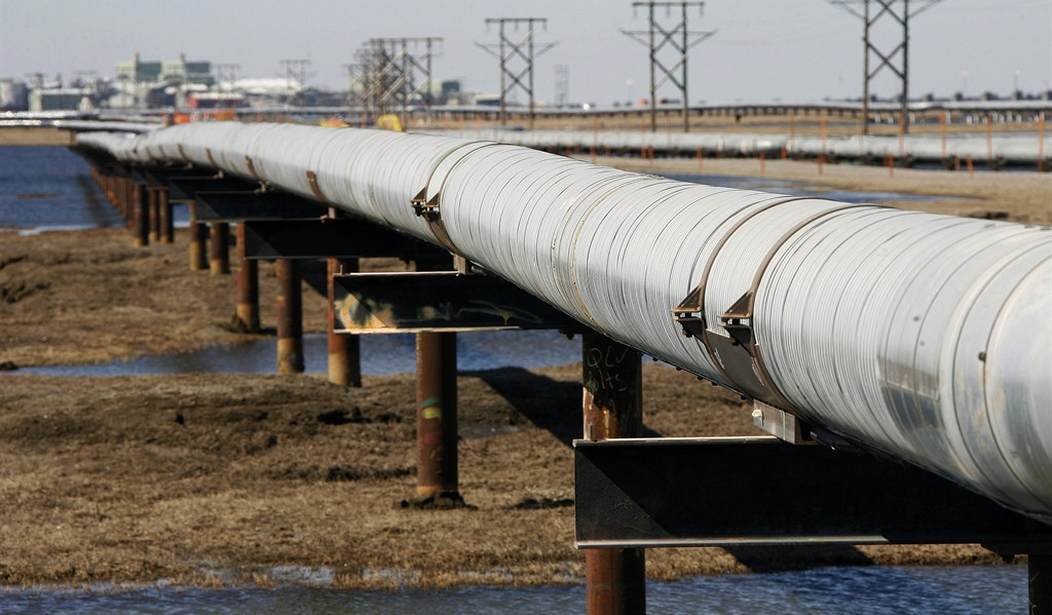The House and Senate have delivered a straightforward correction to one of the Biden administration’s more ideological land management decisions. By passing S.J. Res. 80 under the Congressional Review Act, lawmakers have nullified a 2022 Bureau of Land Management rule that closed nearly half of the 23-million-acre National Petroleum Reserve-Alaska to oil and gas leasing. That is located south of Utqiagvik (formerly known as Barrow), which is the northernmost city in the United States and the seat of the North Slope Borough. And to the south of it, the NPR-A is bordered by the Brooks Range, which is the northernmost major extension of the Rocky Mountains in North America, and is located almost entirely within the Arctic Circle.
The reserve, set aside a century ago precisely for energy production, will now revert to a framework that makes most of it available for responsible development. This is not a radical departure; it is a return to statutory intent. Congress created the reserve in 1923 as an emergency petroleum supply for the Navy, then reaffirmed in 1976 and 1980 that its primary mission is expeditious oil and gas leasing.
Kudos to President Trump for opening up more of Alaska to oil and gas leasing. https://t.co/bt8dD2Hf2A pic.twitter.com/DQBZRrERG8
— Steve Milloy (@JunkScience) November 14, 2025
The Trump administration’s 2020 plan honored that directive by opening roughly 80 percent of the area while still protecting sensitive surface resources. The Biden rule, by contrast, locked up 11 million acres under the banner of additional safeguards, even as existing laws and lease stipulations already required environmental review and mitigation.
👏Congrats @RepNickBegich on H.J. Res. 131 passing the House🔥🔥🔥🔥🔥🔥🔥🔥
— Rants From Alaska (@AlaskanRants) November 19, 2025
This is a huge win reopening ANWR's full potential for AK jobs & energy security!
🤔But with regs flipping every admin, how can we lock in 20-year stabilized leases w/ AIDEA & federal backstops to… https://t.co/LVeLstVXLH
READ MORE: Reversing Past Mistakes: U.S. Begins Restoring Depleted Oil Reserves
Winning! Big Drilling Lease Sales on for Alaska, Gulf of America
Critics will call the vote reckless. Yet the reserve has hosted development for decades without catastrophe. The Willow project, approved under Biden himself, is moving forward under strict conditions and is expected to produce hundreds of millions of barrels while creating thousands of jobs. No credible argument exists that balanced leasing threatens subsistence hunting or caribou migration when modern technology and oversight have proven otherwise.
The real risk lies in continued dependence on foreign suppliers who face no such scrutiny. Alaska’s Republican delegation, Sens. Dan Sullivan and Lisa Murkowski, with House Rep. Nick Begich, pushed this resolution because they understand what distant bureaucrats often ignore: North Slope communities rely on resource revenue for schools, clinics, and basic infrastructure.
The action rescinds a 2024 rule by the Biden administration that had prohibited oil and gas leasing on 10.6 million acres and limited development on an additional 2 million acres within the 23 million-acre NPR-A. This means access has been granted to approximately half of the…
— Andrey Georgiev (@AndreyGGeorgiev) November 14, 2025
The Inupiat-led Arctic Slope Regional Corp. and the North Slope Borough supported the measure for the same reason. When environmental groups lament the loss of a “blunt instrument,” they overlook the blunt reality that the reserve was never meant to be a de facto wilderness area.
Energy security is national security. Domestic production lowers prices at the pump, funds the Treasury through royalties rather than OPEC coffers, and denies leverage to hostile regimes. The last lease sale in the reserve occurred in 2019; mandated sales under recent reconciliation legislation will now proceed without the Biden-era straitjacket.
This vote is not about drilling everywhere tomorrow, but about restoring flexibility so that exploration can occur where it makes economic and environmental sense. Congress has simply reminded the Interior Department what the law has said all along: The National Petroleum Reserve exists to produce petroleum for the United States, not to sit idle while Americans pay more for fuel imported from abroad.
Editor’s Note: Do you enjoy RedState’s conservative reporting that takes on the radical left and woke media? Support our work so that we can continue to bring you the truth.
Join RedState VIP and use the promo code FIGHT to get 60% off your VIP membership!














Join the conversation as a VIP Member